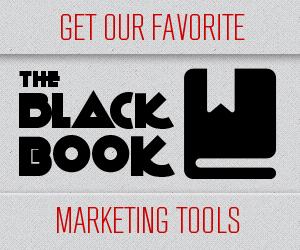The What, Why, and How of CRM
As marketers, making people aware of our brand is a central tenet of our job description. But what that means today is radically different than what it meant even ten years ago.
In the most cutting edge companies marketers are no longer just the voice of the brand, but its face and ears as well. In this way, our role now is less about broadcasting messages and more about increasing awareness through constant Customer Relationship Management (CRM).
Here I’ll break down just what CRM means today, why and how it continues to be essential for all businesses, and where it fits within the broader scope of your new sales funnel.
Why CRM is Important for Your Business
Social proof has always been essential to marketing. Consumers are much more likely to buy a product if they see it validated either by their social equals (e.g. friends, family, community members, etc.) or their social superiors (e.g. celebrities).
In the traditional sales funnel a marketer’s main job existed in those early stages, where we tried to snag customers with promises of savings and other incentives before our competition could do the same. This is also when we tried to use social proof to convince customers of their need. If we were successful, we’d then usher customers down the line to the sales department and customer service.

Now, however, the “funnel” isn’t nearly so linear. The deeper your business gets into content production and social media (and you should get deep into both), the more quickly and completely you’ll be expected to respond to customer inquiries, comments and requests. The goal is no longer to simply advertise your brand or product, but to establish credibility and a unique, helpful, expert presence.
What’s more, today’s CRM is about creating social communities, one where users can find helpful information either directly from your brand or from fellow customers. It is the marketer’s job to spark and guide those conversations, as well as to respond at the right moments in a well-honed, distinctive company voice. The more responsive and helpful you are, the better your company will stick out in a consumer’s mind as a trusted industry leader — one from whom they should buy either now or somewhere down the line.
How to Get Your Own CRM
Developing your own CRM is a matter both of social and content strategy, as well as of embracing new technical tools.
Separate yourself from the pack by developing a unique online presence. For a good model, take a look at the Zappos Twitter feed, managed by the company CEO, Tony Hsieh. These Tweets are helpful, informative, relatable and distinctive, lending both the company and Hsieh an understanding, human face. You just can’t establish that kind of humanity if you’re only announcing your great deals.
Develop original content. This is the fastest way to establish your company as a cutting edge, industry leader, to establish your voice, and to show your customers how responsive you can be to their thoughts and comments. And, as more people are sharing quality content than ever before, it’s a great, inexpensive way to get your brand discovered through social networks.
Buy or create a CRM management platform to manage and measure your extensive social and content campaigns. The more of a presence you establish, the more you’ll have to monitor and measure to stay on top of requests for responses and for measuring the effectiveness of your efforts. That’s why it’s so important to have a centralized platform to help you manage all of your efforts.
Salesforce, for instance, provides a number of metrics right on its dashboard, as well as the ability to track customer interaction and click through rates across multiple channels. However, for companies with very diverse and unique CRM needs, it may be worth using an agile application development provider to create your own, rather than trying to adjust your needs to a standard system.
While going at it yourself will be a larger investment in the short term, you’ll get a high ROI if the system can help you not just manage and track your campaigns, but if it also can give you the tools you need to create even more unique content, based on the data you’ve collected.
There has never been a time when CRM has been more crucial than in our hyper-social age. Do CRM correctly, and the world is yours for the taking.
Adria Saracino is a marketer and blogger. When not consulting on outreach and content strategy, you can find her writing about style on her personal fashion blog, The Emerald Closet.



